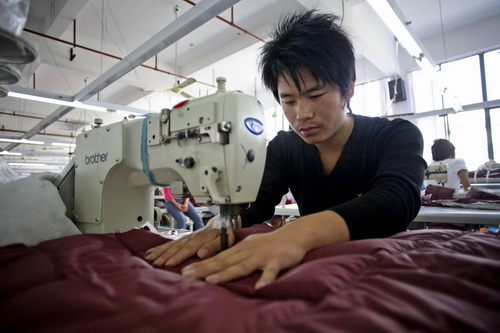Opinion
Counting the cost of rising wages in Chinese industry
(China Daily)
Updated: 2010-06-30 10:18
 |
Large Medium Small |
Experts mull impact of recent salary hikes on economy
Editor's note: While China's economy continues to expand at a rapid pace, the wages of its tens of millions of migrant laborers have not increased at the same rate. The recent suicides at electronics manufacturer Foxconn and the strikes in a number of auto parts factories have led to rapid rises in wages as well as hot debate across the country as to how this new trend will impact on the Chinese economy.
Economists said that although this trend will continue, foreign companies are unlikely to move out of China due to the many other advantages that the nation offers them.
 |
|
A man sews a down jacket at a factory in Pinghu, Zhejiang province. [QILAI SHEN / BLOOMBERG NEWS] |
 |
|
Liu Yihui, economist with Institute of Finance and Banking, Chinese Academy of Social Sciences |
Southern China recently witnessed several strikes calling for wage increases, which indicated that the nation's cheap labor advantage may have come to an end.
In my opinion, this wage pressure lies in the fact that "the bubble economy" has eaten into and will continue to eat into Chinese labor dividends.
Because ample supplies of money has flown into capital goods and led to the rapid rise of land and property prices in recent years, urban living and business costs have surged. At the same time workers' real financial abilities have declined, which is bound to boost wages.
Rising labor costs mean the opportunity costs of farmers will also rise, thus leading to rising agricultural product prices.
On the other hand, for fear of the impact of the bubble bursting, there has been a marked reluctance to substantially tighten money supply, which has caused a rise in production costs and could even lead to stagnation. This does not mean the Chinese economy will witness zero or even negative growth, but that the momentum will gradually weaken.



